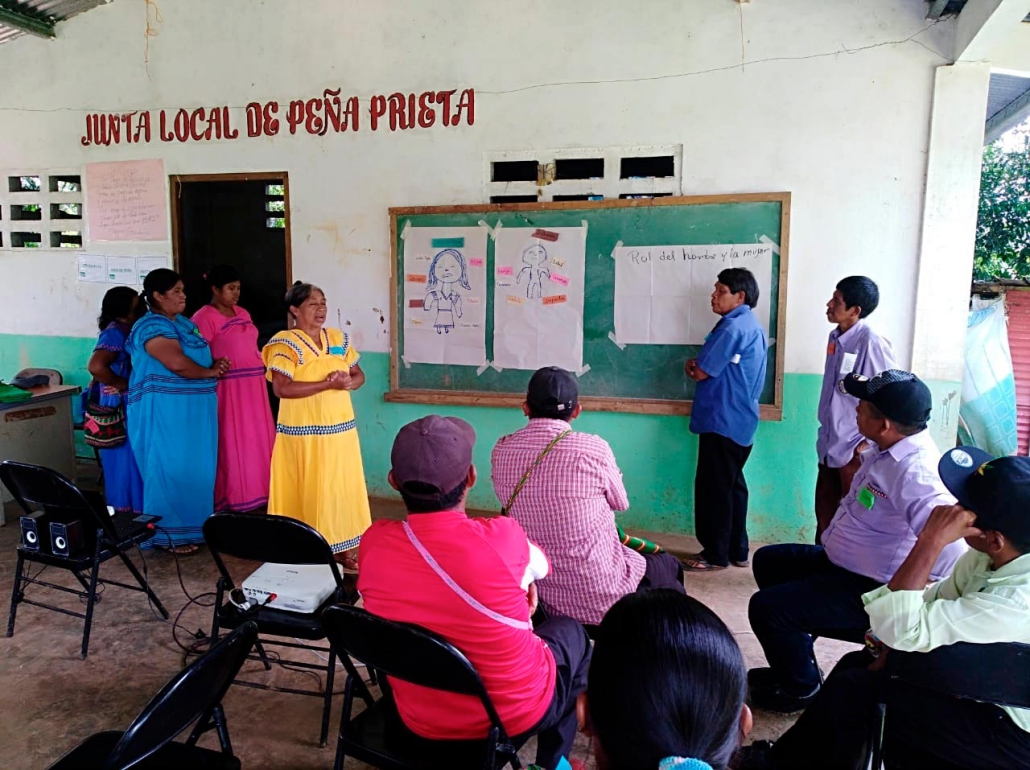Gender-Sensitive Approach
One of the keys to ensure that water and sanitation services are sustainable over time
One of the keys to ensure that water and sanitation services are sustainable over time

Gender equality is key to ensuring that water and sanitation services are sustainable over time and that human rights are enforced. The gender-sensitive approach is therefore present in all of the Cooperation Fund for Water and Sanitation’s programmes from their conception and is maintained throughout their implementation. This means that programmes have specific indicators on women’s participation and involvement, gender diagnostics are carried out and training activities for women are established. In addition, outcomes are measured by taking into account aspects such as women’s participation in management organisations, such as community water boards.
Throughout 2021, progress has been made in the development of these indicators and work is being done to obtain disaggregated data on the number of women and men who have participated in each of the training and awareness-raising activities developed by the programmes. With regard to the data already available, it should be noted that a total of 3,001 women form part of the community structures created or strengthened by law.
The Water Fund works specifically along five lines, related to the gender-sensitive approach:
Over the years, a number of lessons have been learned that allow for further elaboration of the gender-sensitive approach. Among the lessons learned, it is worth highlighting the need to support an adequate institutional legal framework in partner countries for the incorporation of equality plans; to materialise the economic empowerment of women by including the gender-sensitive approach in the terms of reference of programmes, the obligation to include clauses indicating that the training and hiring of women must be carried out under the same conditions as men, etc… Furthermore, information must be collected, the processes carried out must be systematised and the results obtained must be measured.
La equidad de género es una de las líneas fundamentales de la alianza del Gobierno de España y el Banco Interamericano de Desarrollo (BID), es un elemento transversal de los programas del Fondo de Cooperación para Agua y Saneamiento (FCAS) y una de las claves para garantizar servicios equitativos y sostenibles, puesto que cuando la mujer participa en la gestión y administración de los sistemas, los impactos positivos son notables.